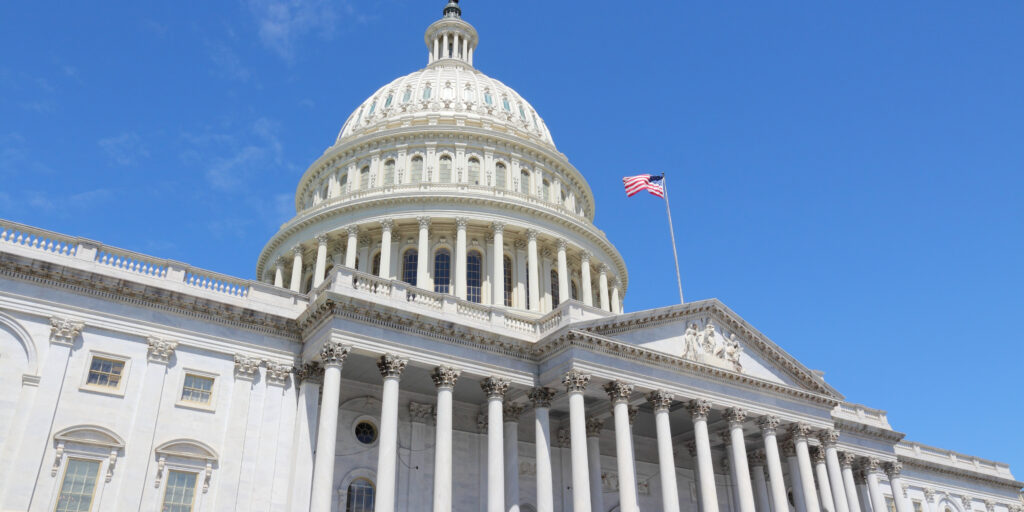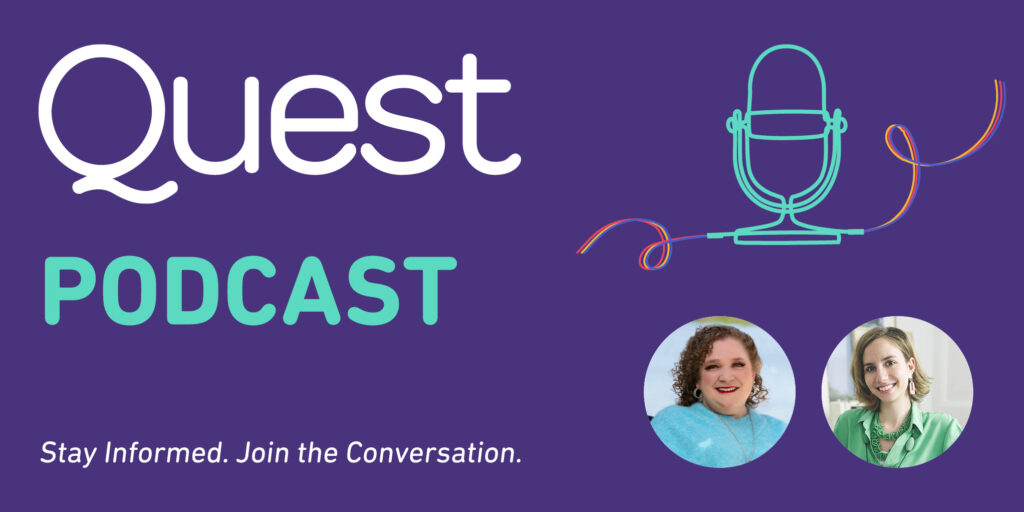
Federal Appropriations: MDA and Neuromuscular Disease Community Priorities
By Jori Houck | Thursday, June 13, 2024
Each year, Congress must create and pass legislation to fund the government’s operations and programs. This process is called the federal appropriations process and is a complex and often hard-to-predict system. It determines which programs that are important to the neuromuscular disease community are funded and how much money each program receives each year.
Although the appropriations process can be a bit confusing, we aim to explain how it works and to highlight the specific programs and funding allocations that MDA’s Advocacy team is paying close attention to.
Why is the appropriations process important?
The appropriations process determines the funding levels for care, research, and other key programs that help those living with a neuromuscular disease to live the most healthy and independent lives possible. Through the appropriations process, Congress demonstrates what programs they support, and what they are likely to support in the future. Congress is showing their support for programs that are important to the neuromuscular disease community!
What does the appropriations process generally look like?
Instead of funding the government in one big bill, Congress usually splits funding bills into several smaller pieces of legislation. Throughout the year, committees assigned to each smaller bill hold hearings and make any changes to the funding bills. If all goes to plan, each of those smaller bills are then reviewed and passed one-by-one, thus funding the government.
However, not everything in Congress goes according to plan. Recently, after hard fought negotiations, Congress has combined these smaller bills into much larger pieces of legislation and sent those to the President’s desk right before crucial funding deadlines were set to expire. For example, this year, Congress passed two large appropriations bills that fully funded the government.
As mentioned, just a little while ago, Congress finished its work on this year’s appropriations process and is already beginning the process over again for the next fiscal year. We’re thrilled many of the programs important to the neuromuscular community received support from Congress.
How did programs important to the neuromuscular community do during this year’s appropriations process?
National Institutes of Health (NIH) – $47.08 Billion: Medical research is vital as we continue to develop therapies for the neuromuscular community and the work done at the NIH is critical to this effort. We are excited that the NIH received approximately $47 billion this year to ensure that they can continue conducting high-level medical research. The NIH contains twenty-seven different centers and conducts groundbreaking research, clinical trials, and more, including work to understand neuromuscular diseases and develop treatments. Below is how two of these important NIH centers faired in this year’s appropriations process.
- National Center for Advancing Translational Sciences (NCATS) – $928 Million: Within the NIH, the NCATS conducts research and supports activities to translate important basic scientific discoveries into the clinic, including for neuromuscular diseases. As a leader of the NCATS Alliance, which fights for expanded funding of NCATS, MDA is delighted to see continued strong support in the amount of $928 million from Congress for NCATS and looks forward to continuing our leadership of the Alliance.
- National Institute of Arthritis and Musculoskeletal and Skin Diseases (NIAMS) – $685 Million: NIAMS is dedicated to supporting research into the causes, treatment, and prevention of arthritis, musculoskeletal diseases, and skin diseases. Some neuromuscular diseases fall into the musculoskeletal category and are part of NIAMS activities. We are excited that NIAMS received $685 million in funding from Congress that will allow it to continue its crucial work.
Was any funding included for ACT for ALS implementation?
ACT for ALS Implementation – $75 Million: We are pleased to see a strong commitment from Congress to continue to fund the ACT for ALS’s Expanded Access Grants program, with $75 million in this year’s federal appropriations process. These grants fund access to investigational ALS treatments for people living with ALS who cannot participate in clinical trials, while also supporting research on treatment safety and ALS progression. Additionally, at least $5 million was appropriated for the Rare Neurodegenerative Disease Grants Program at the Food and Drug Administration.
Was any additional funding included for ALS?
ALS, Devices Shortages, and Other Priorities – $50 Million: We are also appreciative of $50 million in supplemental funding provided to address additional needs of the neuromuscular disease community. While the specific allocation for ALS is not clearly defined, $50 million could be utilized for care, research, therapies, device creation, and more.
Does Congress provide funding for Newborn Screening Programs?
Though newborn screening is primarily a state-by-state issue, and each state has its own screening panel, MDA works to continue expanding vital newborn screening programs. These programs help to ensure that newborns have access to medical interventions as soon as possible when identified at birth with a neuromuscular disease, such as Pompe disease, spinal muscular atrophy (SMA), and Duchenne muscular dystrophy (DMD).
Funding for these programs is essential to the newborn screening process, and we are pleased to report that Congress’s support for newborn screening continues in this year’s appropriations process, with approximately $41.83 million provided and split between two initiatives:
- $21 Million for CDC’s Quality Assurance Program – The Centers for Disease Control and Prevention (CDC)’s Newborn Screening Quality Assurance Program (NSQAP) supports the quality and accuracy of newborn screening results to U.S. states, laboratories, and other countries.
- $20.83 Million for HRSA’s Newborn Screening Program – The Health Resources and Services Administration (HRSA) works to connect newborns with screening and early care for several serious conditions, including certain neuromuscular diseases.
What happens next?
MDA Advocacy will continue to advocate for the highest possible levels of funding for each of these programs and many others that provide a positive impact to the neuromuscular disease community by advancing research, improving treatments, and enhancing independence for everyone living with a neuromuscular disease. Without strong funding, these programs will not be able to continue to develop life-saving treatments, conduct research, and improve access to care that supports the neuromuscular disease community.
Next Steps and Useful Resources
- Join the MDA Advocacy Team at org/Advocacy to get involved with us and to keep up with the latest MDA advocacy opportunities!
- Stay up-to-date on Quest content! Subscribe to Quest Magazine and Newsletter.
TAGS: Advocacy Updates, Newborn Screening, Research
TYPE: Blog Post
Disclaimer: No content on this site should ever be used as a substitute for direct medical advice from your doctor or other qualified clinician.




